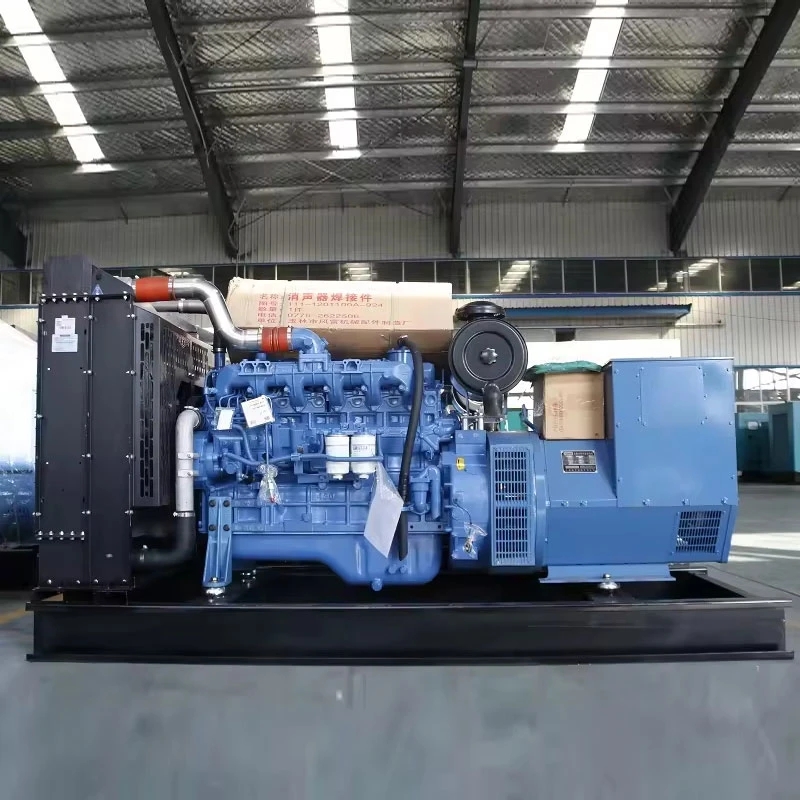Introduction:
Diesel generators play a crucial role in providing backup power during emergencies or when the main power source fails. One of the key functions of diesel generators is to regulate voltage and ensure a stable supply of electricity to various applications. In this article, we will explore the importance of diesel generators for voltage regulation, how they work, their benefits and limitations, and the different types of diesel generators available in the market.
Importance of Voltage Regulation:
Voltage regulation is essential for maintaining the stability and reliability of electrical systems. Fluctuations in voltage can lead to damage to sensitive electronic equipment, loss of data, and even pose a safety hazard. Diesel generators are commonly used for voltage regulation due to their ability to provide a constant and reliable power supply, especially during peak demand periods or when the grid power is unstable.
How Diesel Generators Work for Voltage Regulation:
Diesel generators work by converting the chemical energy stored in diesel fuel into mechanical energy through a combustion process. This mechanical energy is then converted into electrical energy using an alternator, which produces an alternating current (AC) output. The alternator is responsible for regulating the voltage and frequency of the electricity generated by the diesel engine.
Voltage regulation in diesel generators is achieved through various mechanisms such as automatic voltage regulators (AVRs) and load sharing systems. AVRs monitor the output voltage of the generator and adjust the excitation current to maintain a stable voltage level. Load sharing systems, on the other hand, distribute the load among multiple generators to ensure balanced operation and prevent overloading.
Benefits of Using Diesel Generators for Voltage Regulation:
There are several benefits to using diesel generators for voltage regulation, including:
1. Reliability: Diesel generators are known for their reliability and durability, making them suitable for critical applications where a stable power supply is essential.
2. Fuel Efficiency: Diesel engines are more fuel-efficient than gasoline engines, resulting in lower operating costs over the long term.

3. Scalability: Diesel generators can be easily scaled up or down to meet the power requirements of different applications, making them versatile and adaptable to various scenarios.
4. Quick Start-Up Time: Diesel generators can start up quickly and provide power within seconds, making them ideal for emergency situations or sudden power outages.
5. Longevity: Diesel generators have a longer lifespan compared to other types of generators, providing a cost-effective solution for long-term power needs.
Limitations of Using Diesel Generators for Voltage Regulation:
Despite their many benefits, diesel generators also have some limitations, including:
1. Environmental Impact: Diesel generators produce emissions that can contribute to air pollution and climate change, making them less environmentally friendly compared to alternative energy sources.
2. Noise Pollution: Diesel generators can be noisy during operation, which may be a concern in residential areas or noise-sensitive environments.
3. Maintenance Requirements: Diesel generators require regular maintenance and servicing to ensure optimal performance and reliability, which can add to the overall operating costs.
4. Initial Cost: Diesel generators have a higher upfront cost compared to other types of generators, which may be a barrier to entry for some users.
Types of Diesel Generators for Voltage Regulation:
There are several types of diesel generators available in the market, each with its own set of features and capabilities. Some common types of diesel generators for voltage regulation include:
1. Standby Generators: Standby generators are designed to provide backup power in case of a grid power failure. These generators are typically used in critical applications such as hospitals, data centers, and industrial facilities where uninterrupted power supply is essential.
2. Prime Power Generators: Prime power generators are designed to operate continuously for extended periods and are used as the primary source of power in remote locations or off-grid applications. These generators are ideal for powering remote mining sites, telecommunications towers, and rural communities.
3. Portable Generators: Portable generators are compact and lightweight units that can be easily moved from one location to another. These generators are commonly used for outdoor events, camping trips, and as emergency backup power for residential properties.
4. Industrial Generators: Industrial generators are heavy-duty units designed for powering large-scale industrial operations such as manufacturing plants, construction sites, and oil refineries. These generators are built to withstand harsh operating conditions and provide reliable power in demanding environments.
Conclusion:
Diesel generators play a vital role in voltage regulation by providing a stable and reliable power supply for various applications. Their ability to quickly start up, scalability, and fuel efficiency make them a popular choice for users looking for a dependable backup power source. While 300KW Diesel Generator For Sale have some limitations, their benefits outweigh the drawbacks in many scenarios, making them a versatile and cost-effective solution for voltage regulation requirements. By understanding how diesel generators work, their benefits and limitations, and the different types available, users can make informed decisions when selecting a diesel generator for voltage regulation purposes.
